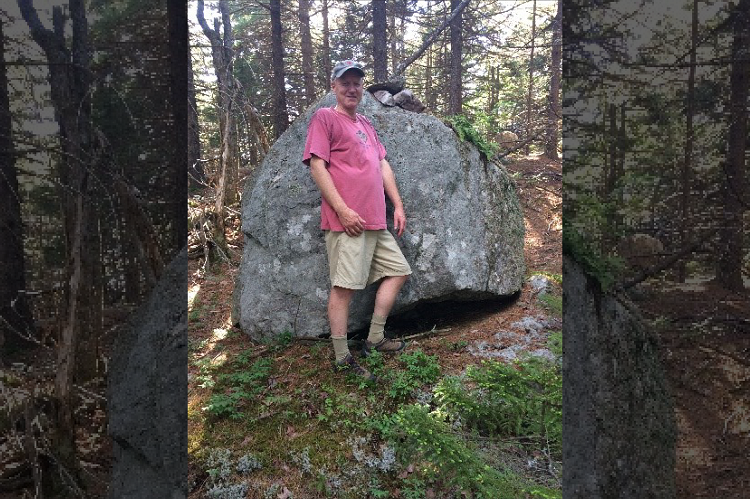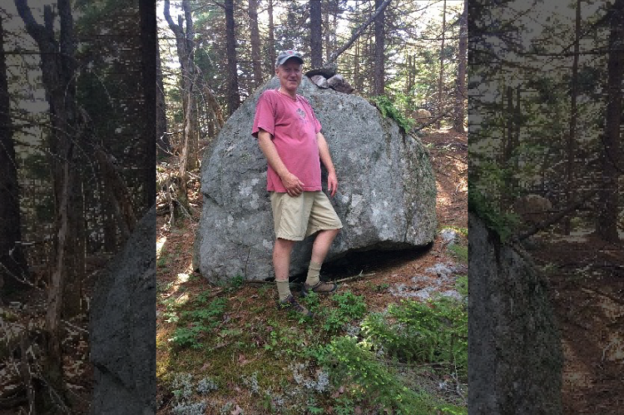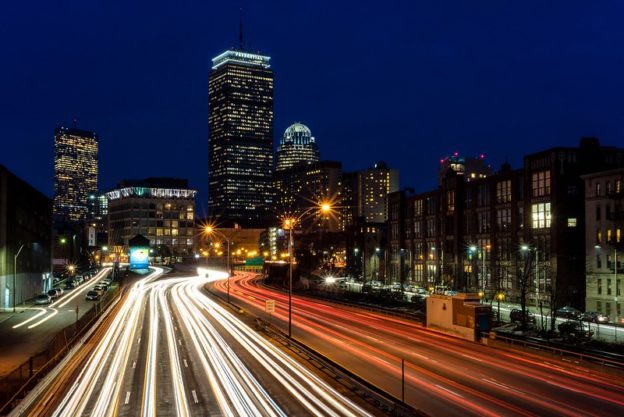The first time I saw myself as a scientist was at a very young age, inspired by scouting. My two favorite merit badges were Nature and Environmental Science – but earning them took effort and time. I had to pick three different environments and observe patterns in them.
I vividly remember taking my bike out every day to our local salt marsh, each time with a growing curiosity. What would I hear? What new discovery would I make? Scouting taught me that if I take the time to look in nature, I will certainly discover something new.

My childhood experiences come full circle.
While my scouting days are over, the lessons I’ve learned still ring true today: that as a community, we must look to the patterns in nature to understand what is happening to it.
Right now, that means grasping how nature is changing in order to adapt to our changing climate.
I’m Tom Eid and I’m a Climate Champion.
I act on climate by helping increase our collective, scientific understanding of how nature fares in the face of rising seas, warming temperatures, and shifting seasons through community science.
Community science is public participation in scientific research and decision making. It has provided me opportunities to collaborate with experts and help protect the environment. It is science by people to benefit nature.
What I did as a scout was science. The activities I completed were part of the practice of phenological monitoring: the observation of long-term patterns in wildlife behavior to understand nature and its adaptation to environmental threats. Many years later, I still use phenological monitoring to better comprehend how wildlife behavior is affected by the threat of climate change.
A return to the salt marsh
From July through September 2020, I worked with Mass Audubon on its Coastal Salt Marsh Climate Change Vulnerability Assessment project.
There was a beautiful nostalgia in the field at Mass Audubon’s Wellfleet Bay Wildlife Sanctuary that reminded me of my time scouting. What struck me is that the smell of a salt marsh is the same – no matter where you go or how many years have passed. There’ll always the gentle bending and bowing of salt marsh grasses as the wind blows through. The feeling of the soft, cushion-like peat underneath me. The calls of birds whistling through the air matched with the slight touch of sea salt in the marsh breeze.
While my monitoring as a scout merited me with a badge, these assessments gave me a pathway for climate action. I helped observe nature’s cues, noting shifts in things like where certain marsh plants grow, to inform adaptation strategies that preserve and enhance this critical habitat for people and wildlife.
The scientist in you
Climate change is our reality: it affects us here and now. We are all responsible for making a difference.
What can you do to act on climate change to ensure a sustainable future for the world around us? Get outside and into nature! Community science can be that opportunity to engage, here’s how to start:
- Pursue your passion. What do you love about the environment?
- Leverage your skills: What do you bring to the table? How can you engage and educate others about new scientific findings?
- Embrace your sector: What type of work do you want to do? Visit Mass Audubon’s website for some ideas.
Together, lets commit to protecting nature. Let’s learn from nature’s patterns and cues, teach each other, and enable current and future generations to act on climate through science.
– Tom Eid, Mass Audubon Community Science Volunteer




